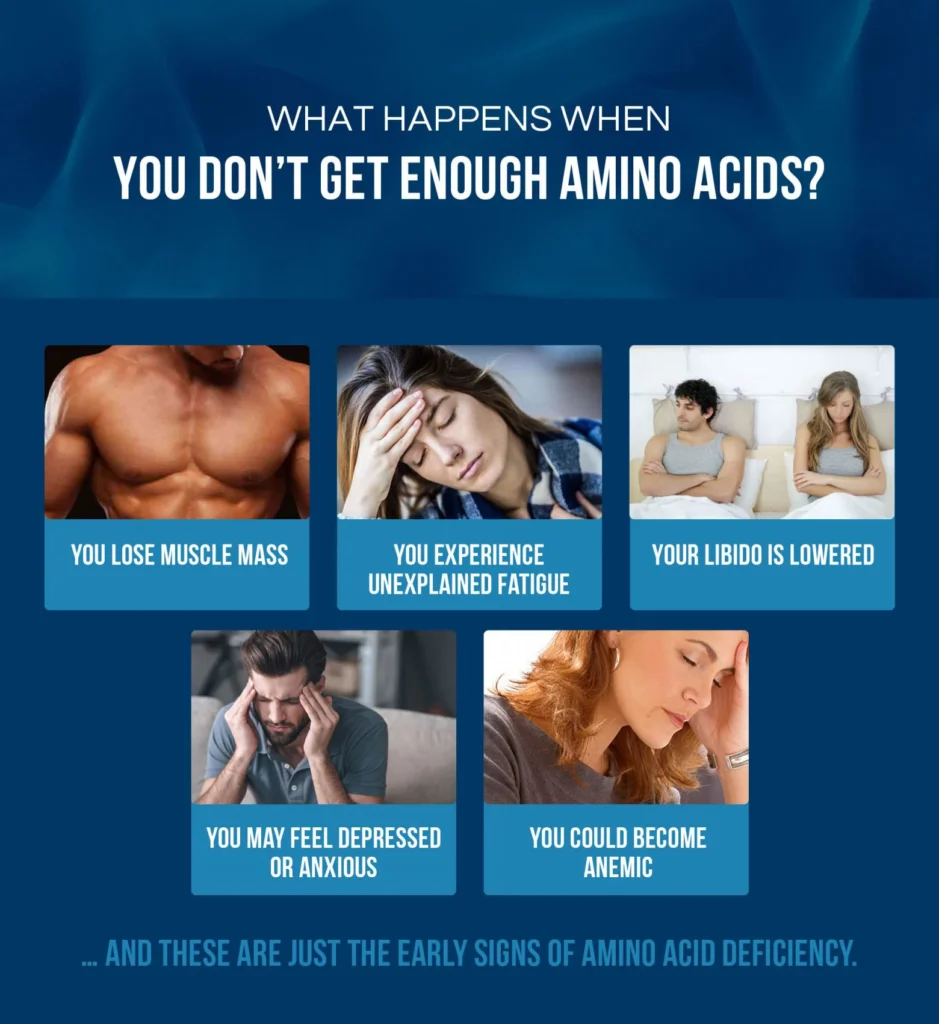
Amino acids are the building blocks of proteins. They are the molecules that all living things need to make protein. A person needs 20 of them to help your body function properly. Your body will make 11 of the necessary amino acids. The 9 that are not produced by your body are called essential amino acids. People need to get these essential amino acids from their food sources. Animal products provide for the easiest way to consume these needed nutrients as they have all 9 within them. Plant products are not complete and there fore would need to have a more wide range of foods in a persons diet to get the 9 essential amino acids into their diet.
Amino acids plan many critical roles within a person’s body. A person needs them for vital processes such as building proteins, which in turn helps us build and maintain muscle, building hormones, and neurotransmitters.
If a person does not receive adequate amounts of amino acids, there will be negative symptoms such as:
- Muscle loss – Our bodies have systems in place to compensate for lack of dietary amino acid intake. One of the first things that happens is the breakdown of muscle tissue, which are assembled from amino acids. Amino acids are then sent where they are most needed, for instance, to maintain heart function. No matter what, some degree of muscle loss will accompany the aging process. A lack of amino acids, however, speeds up the process, which can happen as early as your 30’s.
- Increased anxiety and depression – There is an intimate connection between your amino acid intake and your mental health. We rely on amino acids to produce brain chemicals like serotonin that balance our moods and emotions.
- Difficulty Concentrating – If you are feeling unmotivated, struggling to concentrate, finding it difficult to learn new information, or dealing with “brain fog”, you may have low amino acid levels. As we touched on above, you need amino acids to produce neurotransmitters like serotonin and dopamine. Without enough tyrosine, a conditionally essential amino acids, your brain struggles to create dopamine. And without enough dopamine, your energy levels will lag and your overall cognitive function will decline.
- Digestive Disturbances – In order for the digestive system to operate smoothly, we need a balanced intake of amino acids, which play crucial roles in enzyme production as well as muscle contractions in your gastrointestinal tract. Amino acids have such profound impact on digestion that they may even be used to treat certain gut- related diseases.
- Slowed Healing Time – Amino acids help our muscles recover from exertion, maintain the strength of our bones, and keep our immune system running at peak capacity. A 2009 study showed that amino acids help bone fractures heal more quickly, and findings published in the British Journal of Nutrition show that a deficiency in amino acids impairs immune function and increases your susceptibility to illness.
